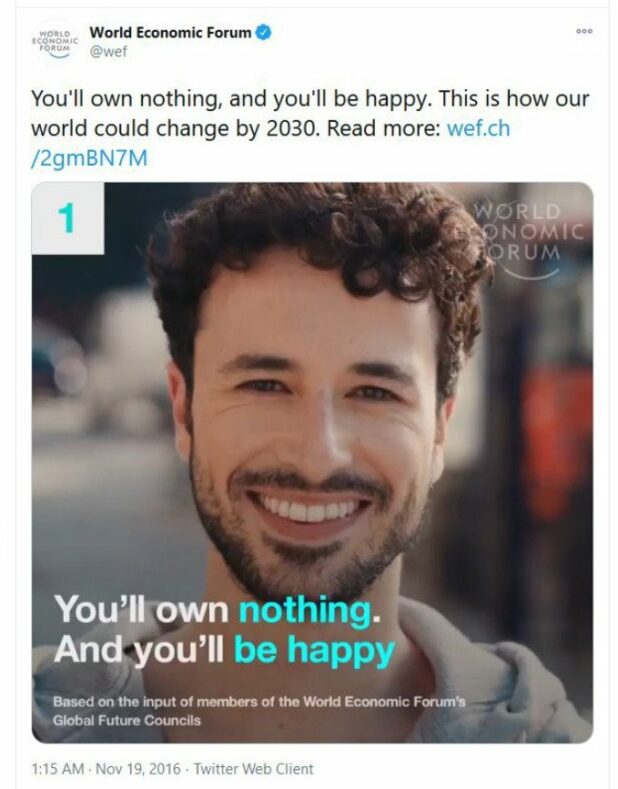Mercedes is adding a subscription fee to their electric vehicles that will increase horsepower and torque. It's happening. Late-stage capitalism is going to have people paying a monthly fee to improve the performance of a car they already bought. pic.twitter.com/7rHIkolC9R
— Fifty Shades of Whey (@davenewworld_2) November 22, 2022
Everyone is getting poorer, including rich people and companies.
As this situation continues, these corporations are going to start squeezing people more and more. They kind of have to, because serious downsizing of large companies is virtually impossible – especially when you don’t have the option of selling parts of the company to other companies because all other companies are also broke.
You’re going to see this sort of squeezing first from German companies, as The Big Squeeze hit Germany first. But the Germany problem is going to spread everywhere. As we’ve said over and over again, energy is an international market, so unless a country is buying energy from a sanctioned country, the price rises from energy sanctions on countries affect every country.
How would you feel about paying $5 each month for the ability to lock and unlock your car from a distance through an app? What about a $25-per-month charge for advanced cruise control or $10 to access heated seats? What if those charges continued long after your car was paid off?
As vehicles become increasingly connected to the internet, car companies aim to rake in billions by having customers pay monthly or annual subscriptions to access certain features. Not content with the relatively low-margin business of building and selling cars, automakers are eager to pull down Silicon Valley-style profits.
But unlike with Netflix, you won’t be able to use your ex-girlfriend’s uncle’s login in your new BMW. And car buyers don’t seem too thrilled about the idea.
For automakers, the advantage of this model is clear. Not only do they get a stream of recurring revenue for years after an initial purchase, they can hope to maintain a longer-term relationship with the customer and build brand loyalty, said Kristin Kolodge, vice president and head of auto benchmarking and mobility development at J.D. Power.
This approach can also allow carmakers to streamline manufacturing by building cars to more uniform specifications, Mark Wakefield, who runs the automotive and industrial practice at the consulting firm AlixPartners, told Insider. Down the line, owners can add on the features they want à la carte.
…
Some people may welcome the ability to only pay for the features they actually want, rather than a big bundle of add-ons. But car companies still haven’t figured out exactly what customers are willing to pay for, and what feels like a frustrating upcharge.
In 2019, BMW abandoned a plan to charge $80 per year for Apple CarPlay after widespread pushback. In December, Toyota said it would review a subscription plan that unintentionally paywalled use of the key fob for remote start.
“I think we’re going to see some interesting ebbs and flows of what really sticks,” Kolodge told Insider.
Automakers run the risk of making customers feel like they’re paying twice — once for a function to be built into a vehicle and again to activate it, Kolodge said. They may have more luck asking people to subscribe to brand-new services, rather than familiar features, she added.
Understandably, drivers aren’t nearly as excited about recurring fees as carmakers are.
An April study by Cox Automotive found that 75% of consumers are not willing to subscribe to most vehicle features. Drilling down deeper, 92% of respondents said heated and cooling seats should be included in a car’s up-front price, and 89% said the same for remote-start functions.
There is no plan to bring back Russian energy and there is no plan to bring back coal and other natural sources of energy. These people are telling you that following the cutting off of Russia, the plan is simply to build more windmills.
Turning cars into a service you have to pay for is just the first step in what is going to be a long process of companies squeezing the middle class to try to force them to choose between various things we grew up with as normal.
The people doing this think they’re being clever. There is no reason Germany needed to be dependent on Russia in the first place. They closed all their nuclear plants for no reason, and they have coal (everyone has coal). They made themselves dependent to try to change the weather (they want to turn the earth into a solid sheet of ice).
They think they are doing a Great Reset against you, and that they’re going to stop you from breeding, maybe kill you with vaccines and poisoned food, and then replace you with robots.
The big problem here is that Russia and China (along with their increasing number of allies) are not on board with this agenda. If the West destroys their own economy and population, all that does is put them in a worse situation to confront all these people they declared war on.

